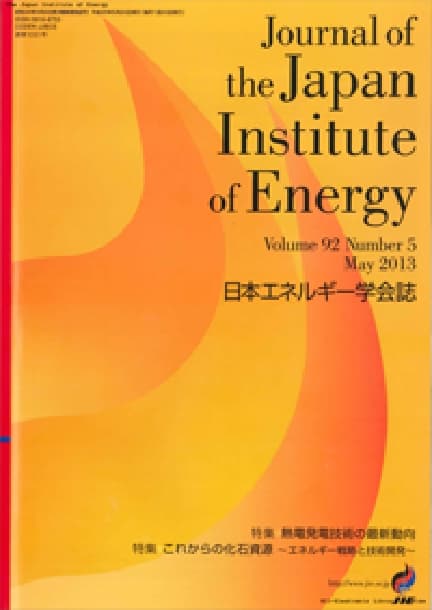Energy Recovery and Utilization by Methane Fermentation of Organic Waste from Baking Factory
Saeko SHIMIZU, Ryuji MATSUHASHI, Yoshikuni YOSHIDA
pp. 46-54
DOI:
10.3775/jie.86.46Abstract
This study focuses on animal and plant residue, which is generated from the baking factory, and proposes the efficient use of the organic waste by the anaerobic digestion.
The energy recovery system uses generated methane gas from the baking factory. We evaluate the feasibility of the system by considering the economical efficiency and CO2 emission reduction potential.
As a result of proof test, 472Nm3 of biogas was obtained from a ton of the normal residue of baking factory. The methane density in the generated biogas was 64%. As for the usage of the biogas, we examined three cases: boilers to heat, generators to electricity, and co-generation to heat and electricity. Then, three cases are compared with the incineration of the residue from the viewpoint of CO2 emission reduction and economical efficiency.
It was found that the largest CO2 emission reduction was given by the co-generation system while the lowest cost was given by the boiler heating system.
Assuming that this system is subsidized by the Ministry of Agriculture, Forestry and Fisheries, half of the initial cost can be endowed. Then, the internal rate of return becomes 22.4 % in the case of the boiler heating system. This result indicates the boiler heating system is economically efficient from the usual investment standard. The co-generation system is also feasible under the subsidy since the internal rate of return of the co-generation system even reaches 13.0 %.
Readers Who Read This Article Also Read
Journal of the Japan Institute of Energy Vol.85(2006), No.7
Journal of the Japan Institute of Energy Vol.87(2008), No.9
Journal of the Japan Institute of Energy Vol.88(2009), No.2










